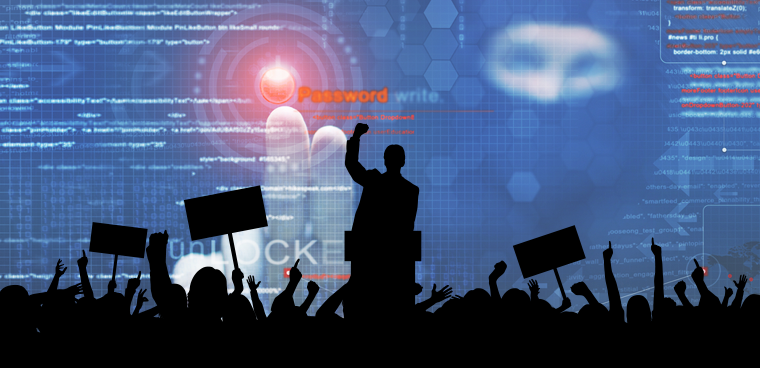Hill Democrats target McConnell in election security push

Congressional Democrats are sounding the alarm on the security threats facing the 2020 elections -- and bashing the senator they feel is most responsible for legislative inaction.

Congressional Democrats are banding together to sound the alarm on the looming security threats facing the 2020 elections -- and bash the senator they believe is most responsible for legislative inaction.
In a July 23 press conference scheduled one day before Special Counsel Robert Mueller heads to Capitol Hill to testify on his report that found "sweeping and systemic" efforts on the part of the Russian government to interfere in the 2016 elections, a group of Democrats pledged to barnstorm around the country serving as "Paul Reveres" to warn about the continuing need for comprehensive election security legislation.
They spent most of their time taking aim at Senate Majority Leader Mitch McConnell (R-Ky.), who has become in many respects the primary target of ire for election security advocates after congressional Republicans acknowledged in a Rules Committee hearing earlier this year that he was blocking legislation from reaching the floor of the Senate.
"The remarkable thing is on an issue where there is broad bipartisan support…McConnell has not brought a single piece of election security legislation to the floor even though the president's own security team has said that we're in jeopardy," Sen. Mark Warner (D-Va.) said.
Last year, the bipartisan Secure Elections Act was scheduled for a markup in the Senate Rules Committee, one of the final steps before a full floor vote. However, the hearing was canceled at the last minute, and although staffers originally said concerns from the states about certain provisions in the bill prompted the decision, the White House came out publicly against the bill soon after. Since then, the Republican-controlled Senate has not advanced any election security bills, even at the committee level.
One of the co-sponsors of the Secure Elections Act, Sen. Amy Klobuchar (D-Minn.), claimed that then-White House Counsel Don McGahn personally lobbied Republicans not to move forward with the bill.
"Don McGahn made calls to Republican senators -- I know this, they won't deny it because they told me it happened," said Klobuchar, who serves on the Rules Committee and is running for the Democratic presidential nomination in the upcoming 2020 elections. "He claimed he was calling from his personal capacity [to lobby against the bill]. He was the White House counsel -- that is not a personal capacity."
Since the Secure Elections Act was tabled, a number of other, mostly Democratic, bills have been introduced and passed in the House only to wind up in "the legislative graveyard" of the Senate, where McConnell has refused to bring them to the floor. When Democrats took control of the House this year, one of the first bills they targeted for passage was H.R. 1, which sought to comprehensively overhaul many aspects of the U.S. election system, including security. After that, they pulled the security provisions into a stand-alone bill, which also passed the House, and senators like Ron Wyden (D-Ore.) have introduced similar legislation of their own.
Common to nearly all those bills are more money for states, stronger language requiring or incentivizing the use of electronic voting machines with backup paper ballots and risk-limiting audits to ensure that the electronic and paper vote counts match.
Warner accused McConnell of giving cover to a White House that is "incapable" of accepting assessments from its own intelligence agencies and repeated a refrain about the Secure Elections Act, predicting that if McConnell were to allow any of the election security bills to reach the Senate floor, they would get around 80 votes.
Only Congress can provide new funding and change the law, but other units of the federal government and election community have moved since 2016 to shore up the nation's defenses.
The Department of Homeland Security's new component, the Cybersecurity and Infrastructure Security Agency, has built much of its core portfolio around providing technical guidance and cybersecurity resources to protect state and local election infrastructure. The Defense Department and U.S. Cyber Command have used new offensive cyber authorities to conduct limited operations against hackers and trolls based in Russia who may seek to repeat 2016 election influence tactics.
States have used $380 million in congressional grant funding to buy new equipment, train poll workers and implement new security protections. The Federal Election Commission has loosened restrictions to allow political campaigns to use free or discounted cybersecurity services to protect against digital threats, while members of Congress are becoming more cognizant of the need to protect their personal accounts and devices.
The White House issued an executive order last year that puts the Office of the Director of National Intelligence and secretary of Homeland Security in charge of identifying efforts by foreign governments or entities to influence or alter U.S. elections through covert means and levy automatic sanctions on any offenders. Just this week, Director of National Intelligence Dan Coats announced the creation of a new position to coordinate election security efforts across the broader intelligence community.
Still, election security experts continue to argue that more resources are sorely needed for state and local governments, which carry out the majority of election administration duties, and intelligence officials say Russia and other countries will be targeting the 2020 elections with renewed fervor.
The same day that lawmakers held their press conference, FBI Director Christopher Wray told members of the Senate Judiciary Committee that "the Russians are absolutely intent on trying to interfere in our elections" and said efforts taken over the past three years had not deterred Russia or other nations from getting involved in 2020.


